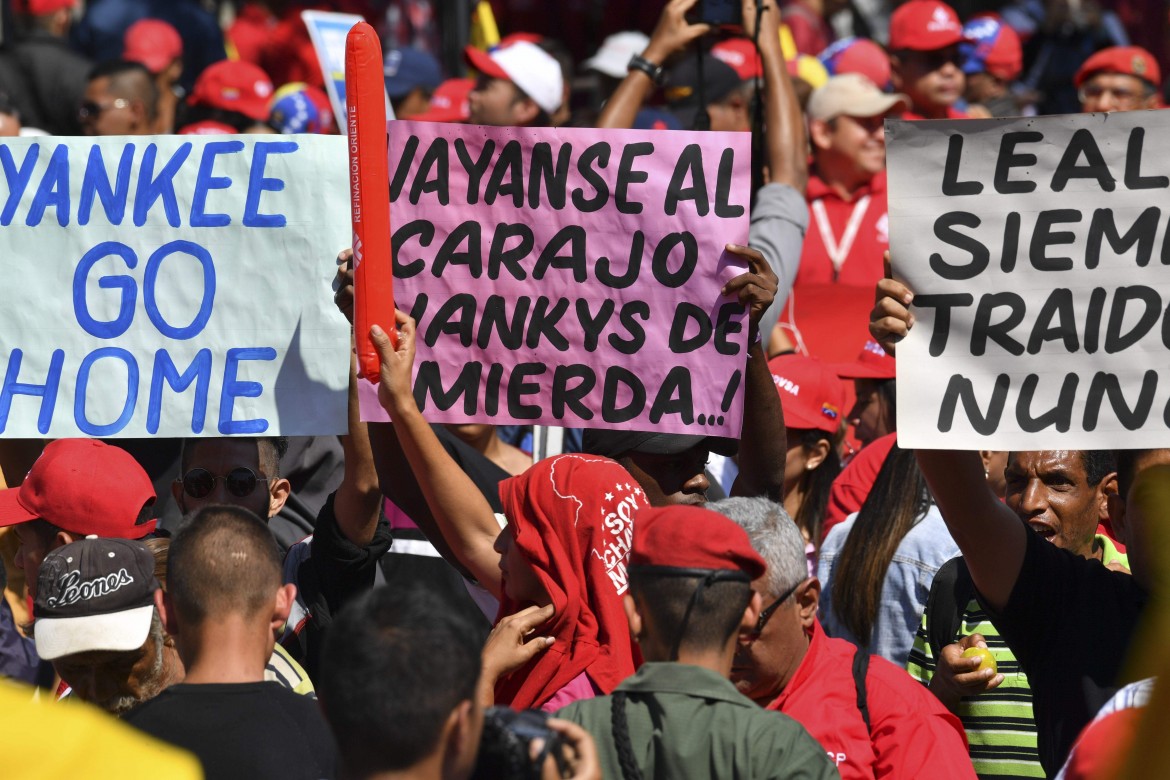Commentary
Montevideo conference may be a last chance for democratic solution in Venezuela
All the forces and parties interested in a democratic solution to the Venezuelan crisis should express clear condemnation of the military threats being made by the US and its allies. Nothing can arise from such a military scenario except the worst possible consequences for Venezuela.

It is striking that the great majority of Latin American governments, and almost all European governments, have rallied behind Donald Trump’s violent and interventionist policies against Venezuela.
The conclusion is inescapable that Europe has never ceased to be an ally of the US on the world stage. It has never freed itself from the fear-inducing “Soviet specter,” now updated to “the specter of Putin,” as a scapegoat used to justify an alliance with Washington in which the Europeans have a subordinate role. Even the fact that Trump has directly insulted much of Europe doesn’t seem to have given rise to a minimum of national pride on the Old Continent.
As if the concerted attacks by all the right-wing governments against Venezuela weren’t enough, even the social-democratic government in Spain and the centrist one in Portugal (which also includes the Communist Party and the Left Bloc) have recognized Guaidó, the right-winger and self-declared interim president whom the United States is trying to impose on Venezuela.
In Latin America, Mexico, Uruguay and Bolivia are still resisting the trend, but a large majority is recognizing the leader of the Venezuelan right wing, not to speak of the openly bellicose attitude of some countries, including Colombia. The announced start of the delivery of “humanitarian aid” across the border between Venezuela and Colombia, to be brought by the US and Colombian military, is a pretext for the entry of foreign troops into the country and yet another attempt to involve parts of the Venezuelan armed forces in a political operation to overthrow the current government. However, this transparent plan also serves as confirmation that both the Venezuelan opposition and Washington are convinced that, without creating further divisions within the army, Nicolás Maduro is bound to remain firmly in power.
On Thursday, a summit is taking place in Montevideo, sponsored by Mexico and Uruguay, to seek a political solution to the conflict. Former Uruguayan President Pepe Mujica has proposed organizing new elections in Venezuela, without the participation of either Maduro nor Guaidó, starting from the premise that the country is unwilling to abide by the current situation, where neither of them has the ability to rule the country in a stable manner, and in which the threat of military intervention is real and imminent.
The main problem with this proposal, which would propose achieving an international framework for consensus, is that it will probably be rejected by both the parties concerned. Meanwhile, projections starting from the current situation are not showing any good prospects for Venezuela. It is not possible to go forward with the current ever-escalating tension, while the internal situation is also being negatively affected by external factors. Nor is it possible to continue with the escalation of internal protests, with the country on a knife’s edge, waiting for some magical solution that does not exist.
All the forces and parties interested in a democratic solution to the Venezuelan crisis should express clear condemnation of the military threats being made by the US and its allies. Nothing can arise from such a military scenario except the worst possible consequences for Venezuela. It is not possible for nominally democratic institutions to be nakedly advocating exclusively for the rights of the opposition, nor is it possible to seek a negotiated solution to the crisis without starting with a clear and plain condemnation of any external aggression.
The Thursday meeting could thus be the last chance to build a consensus around a democratic solution to the crisis. The worst-case scenario is that even in this context, inflexibility will prevail, as well as the idea—as Mujica put it—that it would be possible for one of the two parties to triumph by the full annihilation of the other. That idea can only lead to the intensification of tensions and to a lengthening and worsening of the crisis.
The meeting of the negotiation group might find that supporting a government backed by the United States would be a step forward, compared to the prospect of generalized chaos. However, political solutions are necessary to overcome this negative framework: everyone must prove they want a peaceful solution, one that would be political in nature. With the involvement of the two parties, it is necessary to arrive at a proposal that would make it possible to put an end to the deepest and most long-lasting crisis that Venezuela has ever known—a crisis that, if it persists, could lead to material and institutional devastation for the country.
Emir Sader is a Brazilian philosopher, sociologist and political scientist, one of the organizers of the World Social Forum.
Originally published at https://ilmanifesto.it/a-caracas-il-peggio-dalle-minacce-di-trump/ on 2019-02-06
